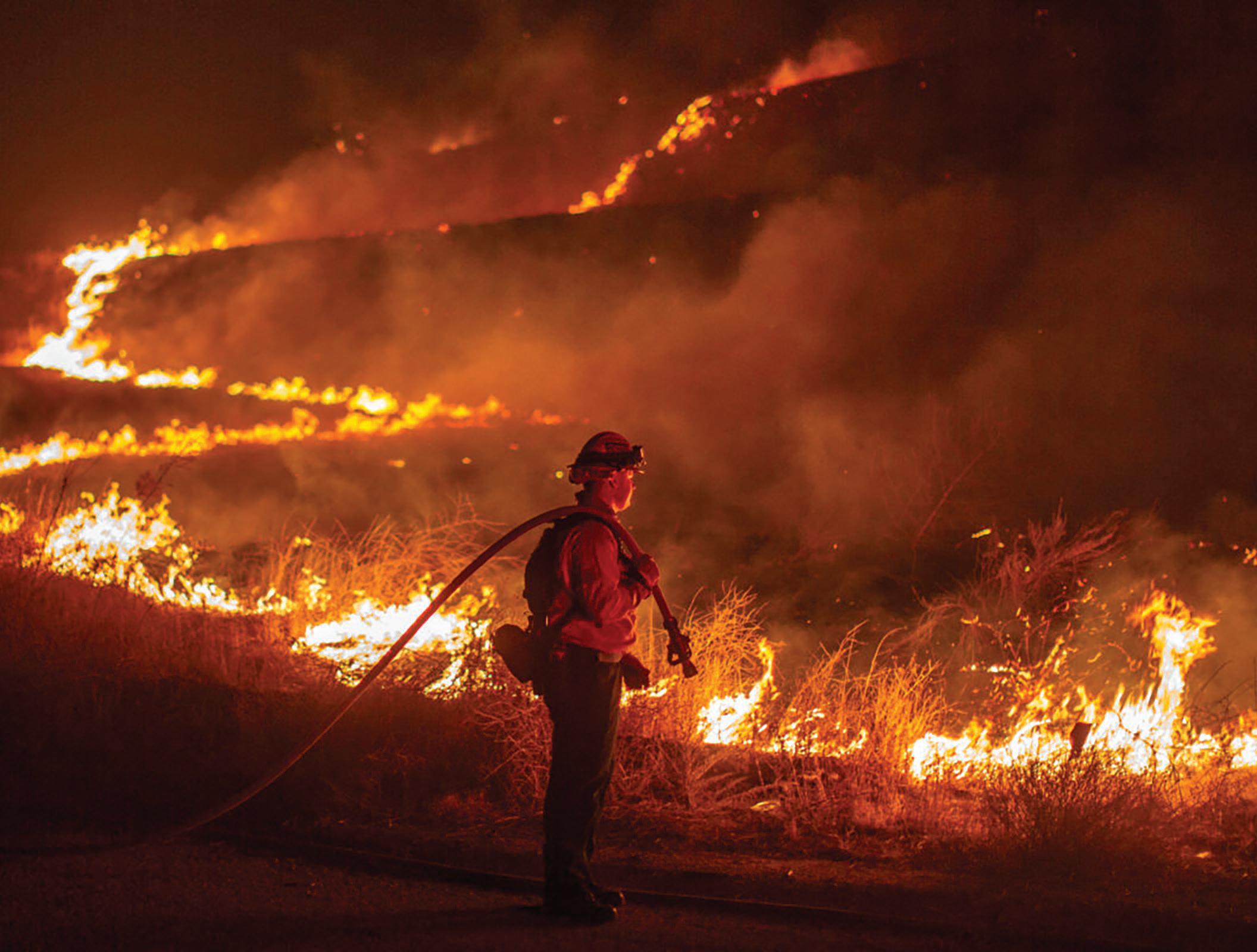Try GOLD - Free
Face of future
Down To Earth
|February 01, 2025
California wildfires confirm forest fires are intensifying in a hotter world, emitting substantial amounts of greenhouse gases and reinforcing global warming

THE TIMING could not have been more coincidental. On T January 20, as Donald Trump took his oath as the US president and signed one of his first executive orders withdrawing from the Paris Agreement on climate change, southern California was fighting one of its most destructive wildfires in history, that scientists say, have been fuelled by human-driven climate change.
Starting on January 7, as many as 255 wildfires broke out in Los Angeles, Riverside, San Diego and Ventura counties, burning more than 50,000 hectares within three weeks and resulting in 28 deaths and unprecedented destruction in the metropolitan and surrounding regions, states California Department of Forestry and Fire Protection. The largest fires were reported from Palisades in Santa Monica mountains, the Eaton located in Altadena area and the Hughes fire around the Castaic lake area, which borders the city of Santa Clarita, forcing evacuations of hundreds of thousands of residents. Scientists at Clima Meter, a platform that assesses and contextualises extreme weather events relative to climate change, say the fires were visible from space and detected by satellites of the US space agency NASA. California governor Gavin Newsom has remarked that the wildfires could be the costliest disaster in US history.
The western state of the US is no stranger to wildfires. But scientists term this event, occurring early in the annual fire season, as rare and extraordinary. ClimaMeter, in its analysis published on January 10, states the wildfires were fuelled by an interplay of different meteorological and hydrological conditions, whose characteristics can be ascribed to climate change. Weather conditions were 5°C warmer, 15 per cent drier and up to 20 per cent windier compared to the past when such fire events were reported.
This story is from the February 01, 2025 edition of Down To Earth.
Subscribe to Magzter GOLD to access thousands of curated premium stories, and 10,000+ magazines and newspapers.
Already a subscriber? Sign In
MORE STORIES FROM Down To Earth

Down To Earth
THINK TWICE BEFORE FELLING SAL TREES
Many trees considered to be affected by sal borer in the 1990s are still alive today
1 mins
February 16, 2026

Down To Earth
EDGE OF SURVIVAL
Caste divides deny marginalised communities land, resources and essential aid, leaving them more vulnerable to climate disasters
6 mins
February 16, 2026

Down To Earth
A WISH LIST?
Union Budget for 2026-27 conveys the impression of a roll-call of intentions and ambitious proposals, with little detail on their formulation
6 mins
February 16, 2026
Down To Earth
Break down the gender wall
THE RULING National Democratic Alliance (NDA) government has been heavily invested in the goal to make India a developed economy by 2047.
2 mins
February 16, 2026

Down To Earth
MENSTRUAL HEALTH, NOW A FUNDAMENTAL RIGHT
In a landmark judgement, the Supreme Court has recognised menstrual health and hygiene as a fundamental right under Article 21 of the Constitution of India, which guarantees the right to life and dignity.
8 mins
February 16, 2026

Down To Earth
Of devolution and new disasters
The 16th Finance Commission pushes for changes in view of new fiscal and climatic conditions
11 mins
February 16, 2026
Down To Earth
Rising risks of plastics
NEGATIVE IMPACTS on human health due to emissions linked to the plastic lifecycle could double by 2040, according to a study published in The Lancet Planetary Health in January.
1 min
February 16, 2026

Down To Earth
GAP BETWEEN EPIDEMICS NARROWING
A watershed-based and landscape-level approach is needed to address forest degradation
2 mins
February 16, 2026

Down To Earth
WAITING TO STRIKE
Sal heartwood borer is considered the biggest threat to forestry in India, especially to the sal tree, where it lives and breeds.
11 mins
February 16, 2026

Down To Earth
A SPRING DELIGHT
Mustard flowers are not meant only for the eyes. Invite them to your plate once in a while
3 mins
February 16, 2026
Listen
Translate
Change font size
